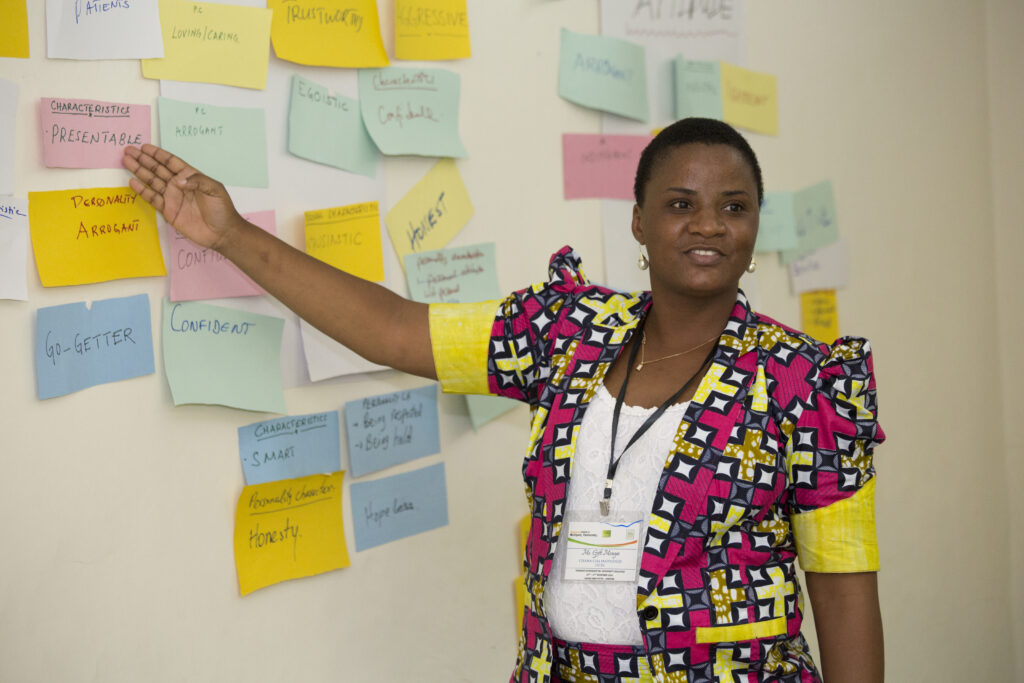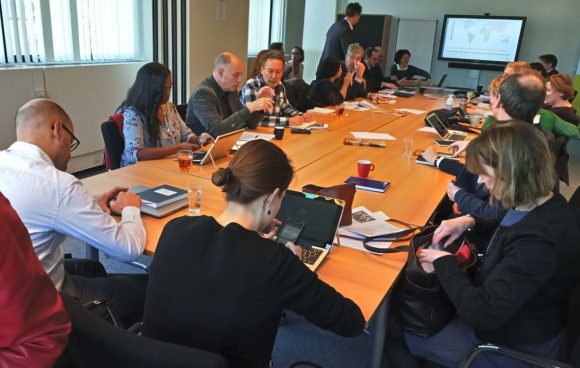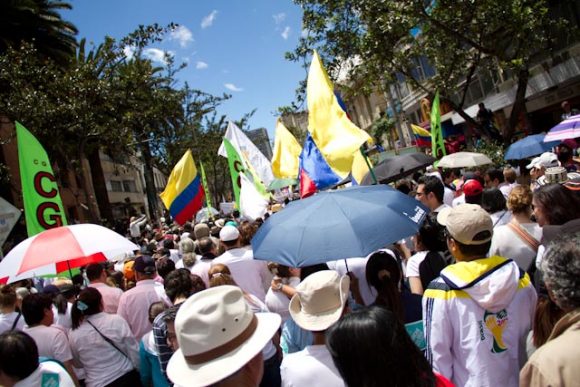What makes a country programme effective?

Self-reflection is essential for any project’s success. Without it, you risk working yourself into a dead end on projects that can’t meet their goals. Whether you’re an individual planning your working day or the CEO the world’s largest corporation, self-reflection is crucial if you are to stay focused on your long term goals.
For NIMD, that kind of self-reflection is tied up with the way we monitor and evaluate our work. It means understanding what really works in the programmes that we run and what can be improved. It is only in this way that we can continue to make our work more effective.
Learning from our peers
What may be even more valuable than individual self-reflection is the ability to do it among your peers. On 14 February, NIMD teamed up with the Knowledge Platform Security & Rule of Law and the Dutch Ministry of Foreign Affairs’ Department for Stabilisation and Humanitarian Aid (DSH) for a special meeting to share and reflect the lessons we have learned from our Mid-Term Review process.

The start of 2019 was the perfect time for NIMD and other organizations in our field to share the results of their respective Mid-Term Reviews and learn from each other’s findings. Here is our reflection on some of the main lessons we learned.
Ways to spot programme effectiveness
Reporting results and meeting the goals that you set out for yourself are challenging aspects of working in global development. Many organizations struggle with this.
However, the participants of the meeting agreed that improving ongoing political analysis made programmes tangibly more effective.
This is especially true when it comes to advocacy on rule of law. By truly understanding the local context that each of our programmes is embedded in, we are much more able to adapt our work to that context. And it also helps us to understand and measure our results in a more nuanced and intelligent way.
Political economy analysis
At NIMD, we pride ourselves on our emphasis on local ownership. It is a core value of all our work. Our programmes are locally set and reflect local demands, and we work with local partners in every country on an equal basis.
Our partners are therefore fully immersed in the local context in which they work and can keep abreast of changes in the political landscape. However, it is important for us to have a systematic approach to gathering and reacting to these changes.
That’s why NIMD has been rolling out a series of political economy analyses. This means that we analyse the prevailing political and economic processes in each society. Through this analysis, we strive to understand the incentives, relationships, and distribution and contestation of power between different groups and individuals.
Our findings give our staff and partners the navigation and orienteering skills to find the most suitable and effective path within a constantly shifting environment.

Outcome Harvesting
Another topic that the participants considered was how to gather and evaluate the results of a programme. It is only by understanding what you have achieved so far that you can increase the effectiveness of your programmes by planning how to move forward.
At NIMD, we use a method called Outcome Harvesting to collect evidence of what has changed (“outcomes”) and, then, working backwards, determine whether and how our work has contributed to these changes.
NIMD has used Outcome Harvesting to evaluate mid-term results in our country programmes in Tunisia, Colombia, Mali and Mozambique, as well as in an end-evaluation of a one of our projects in Burundi.
However, we are now piloting Outcome Harvesting as a monitoring approach in our ongoing Mali and Ethiopia country programmes. And we are planning to evaluate two more country programmes using Outcome Harvesting in 2019, Myanmar and Ethiopia.
Working together to strengthen our programmes
At NIMD, we are constantly looking for new ways to make sure our programmes are as effective as they can be. In the past year, that has involved new approaches, like political economy analysis and outcome harvesting. We hope that by using these approaches to make sure that, firstly programmes are suited to (and can adapt based on) the political context in their countries, and secondly, we understand our results and how best to build on these.
We are grateful to have been able to discuss these new approaches with other organizations, and see how they tackle the challenges that we all face in our sector. By learning and sharing together, we hope that we can build on each other’s successes.
